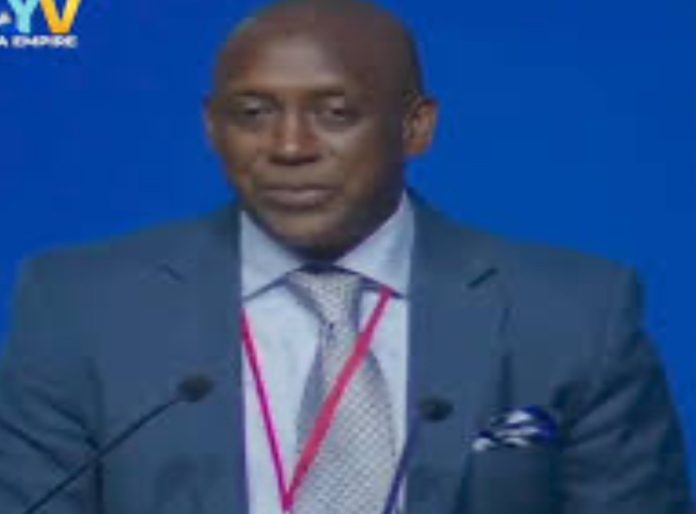AYV News, April 4, 2025
Hon. Dr. Kandeh Kolleh Yumkella, Chairman of the Presidential Initiative on Climate Change, Renewable Energy, and Food Security, said Freetown still faces power challenges due to insufficient generation capacity, while several Sierra Leonean regions, including Kono, Makeni and Bo, have seen improvements in electricity supply.
Dr. Yumkella said that they are pleased to have witnessed the approval of the Deputy Minister of Energy II, Dr. Abdul Rahim Jallah, during a parliamentary session.
“Last week, we had a hearing at parliament for the approval of the deputy minister of energy ii. In that area, we are very pleased that the Hon. Member of Parliament for Kono, honorable Lamina, announced that they are very happy in Kono and that they have 24 hours of electricity.” He said.
He continued saying that in that light, Kono and Makeni now have 24-hour electricity, while Bo has improved. However, Freetown is struggling, owing to a severe decline in the electricity supply from the Bumbuna hydroelectric facility.
“For the first time, Bumbuna is unable to supply up to 1 mega byte to Freetown. Normally, in this period, Bumbuna will supply 14, 15 mega watts. It will drop some in Makeni and Magburaka, the rest will come to Freetown. But the last four days, it only sent less than 1 mega watts to Freetown and we had to stop it because it was tripping the system,” he said.
Freetown now receives 68 megawatts of evening power. During the day, the Makok solar facility in Makeni provides an additional 9-10 megawatts. Gas-powered generators are typically used in the evening to conserve fuel.
Dr. Yumkella also said that the increasing power supply caused fluctuations, resulting in system trips and blackouts, and that power is restored in about an hour after each interruption.
The chairman of the Presidential Initiative on Climate Change said that despite the hurdles, they are finding long-term solutions to sustain the capital’s electrical supply.

